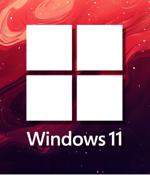Security News

Microsoft reminded customers today that multiple editions of Windows 11 22H2 and 21H2 have reached their end of servicing. [...]

Microsoft says this month's Patch Tuesday cumulative updates fix a known issue that causes Windows servers to disrupt Remote Desktop connections in enterprise networks after installing the July...

Microsoft has released the KB5044284 and KB5044285 Windows 11 cumulative updates for versions 24H2 and 22H2/23H2 to fix security vulnerabilities and resolve 27 bugs and performance issues. [...]

Microsoft has released the KB5044273 cumulative update for Windows 10 22H2 and Windows 10 21H2, which includes nine changes and fixes, including a new Windows Update opt-in notification shown when...

Microsoft has released Office 2024 for small businesses and consumers who want a standalone version without a Microsoft 365 subscription. [...]

Microsoft is blocking Windows 24H2 upgrades on systems with incompatible Intel Smart Sound Technology (SST) audio drivers due to blue screen of death (BSOD) issues. [...]

Microsoft is working to fix several known issues behind Asphalt 8 game crashes and Easy Anti-Cheat blue screens on some Windows 24H2 systems. [...]

Version 24H2 adds the sudo command and alerts users when an application accesses their physical location. Microsoft polished other security features, too.

Microsoft fixes a known issue in the Windows KB5043145 preview update that causes reboot loops, freezes systems, and breaks USB and Bluetooth devices. [...]

Today, Microsoft announced the release of Windows 11, version 24H2, the next feature update for its operating system (also known as the Windows 11 2024 Update). [...]